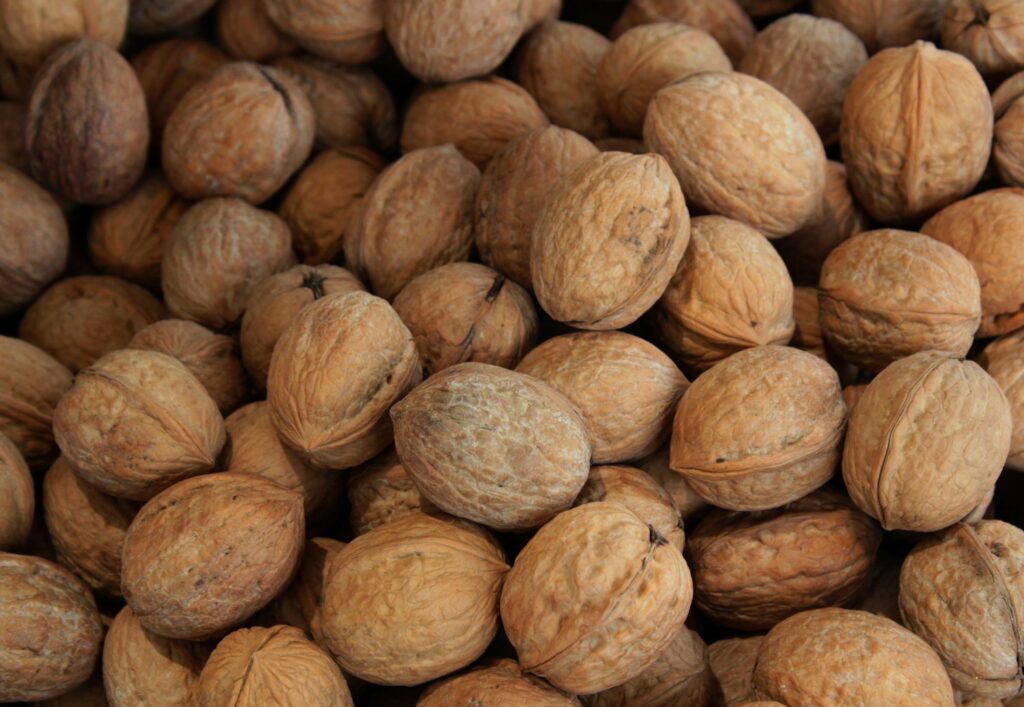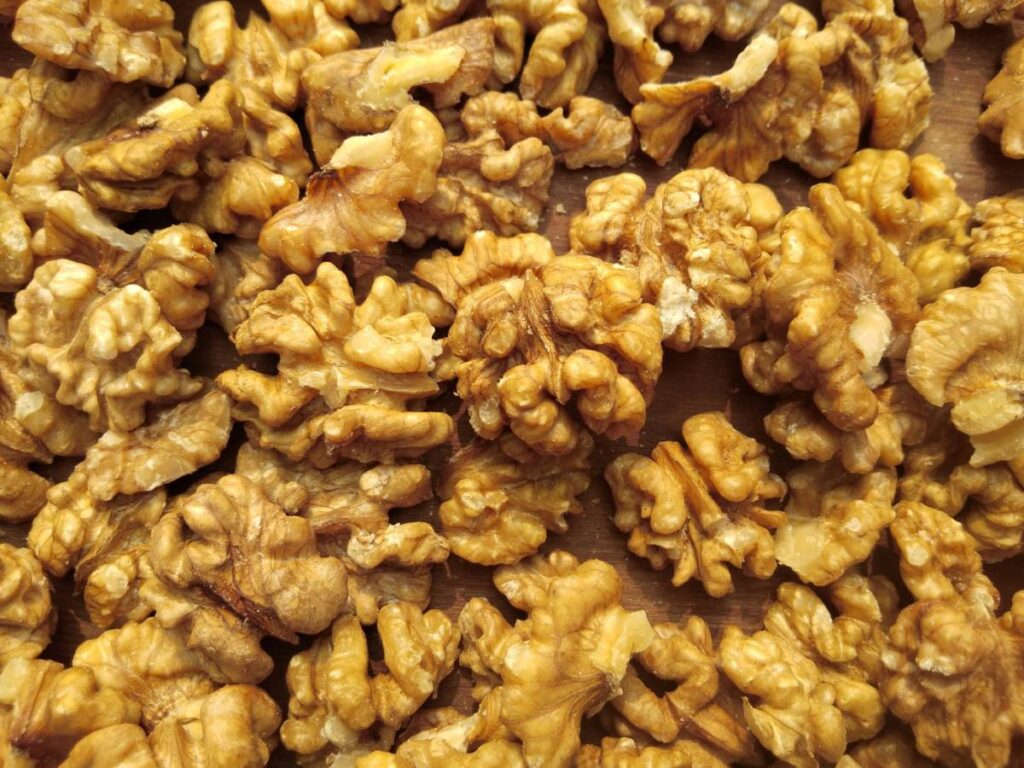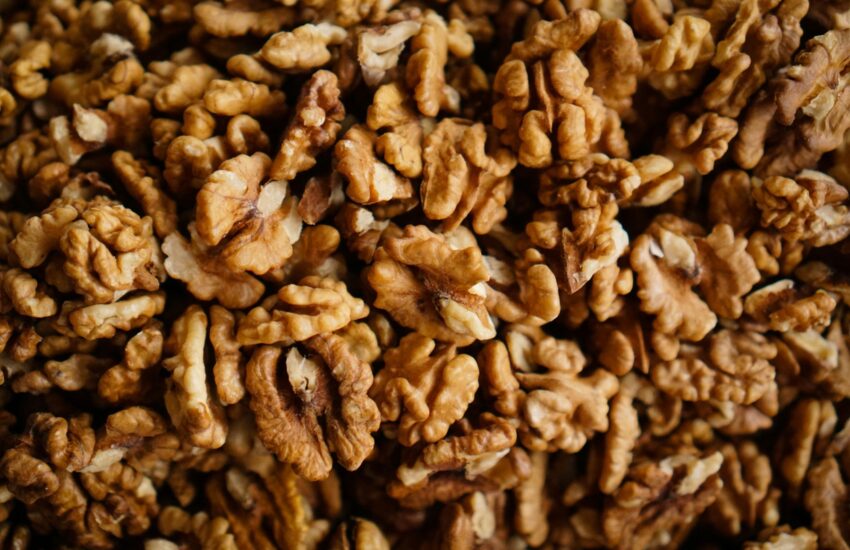Walnuts are nutrient-dense nuts that have been consumed for centuries for their health benefits. These nuts are packed with essential nutrients, including healthy fats, proteins, vitamins, and minerals, making them an excellent addition to any diet. Though walnuts offer year-round benefits, consuming them in winter provides unique advantages due to their warming properties and nutritional profile. In this article, Mohit Tandon from USA will explore Why You Should Consume Walnuts in your winter diet and how they contribute to overall health, particularly during the colder months.
1. Walnuts and Winter Nutrition
1.1. High in Essential Nutrients
Walnuts are an excellent source of omega-3 fatty acids, antioxidants, and several vitamins and minerals, all of which are crucial for maintaining health during the winter season. As the weather becomes colder, our body requires more energy and nutrients to stay warm and healthy. Walnuts provide a great source of calories from healthy fats, which help in maintaining body temperature and offering energy during the colder months.
1.2. Rich in Omega-3 Fatty Acids
Omega-3 fatty acids are essential for maintaining heart health, reducing inflammation, and supporting brain function. During winter, people tend to spend more time indoors, which can lead to reduced exposure to sunlight and lower levels of vitamin D. Omega-3 fatty acids, found abundantly in walnuts, can help counterbalance this deficiency and support a healthy immune system.
2. Boosting Immunity During Cold Weather
2.1. Antioxidants to Fight Seasonal Illnesses
During the winter, cold and flu season is at its peak. The immune system tends to be more vulnerable to infections in colder weather due to less exposure to sunlight and changes in lifestyle. Walnuts are packed with antioxidants such as vitamin E, polyphenols, and other bioactive compounds, which help to fight oxidative stress and protect the body from illness. The antioxidants in walnuts play an important role in boosting the immune system and supporting its defense against seasonal viruses and infections. – Mohit Tandon USA
2.2. Reducing Inflammation
Inflammation is common during the winter months due to lower temperatures, which can exacerbate symptoms of chronic conditions like arthritis or colds. Walnuts contain anti-inflammatory properties due to the presence of omega-3 fatty acids, which can reduce the levels of pro-inflammatory markers in the body. Including walnuts in your winter diet can help reduce inflammation and alleviate symptoms related to such conditions.

3. Supporting Heart Health in Winter
3.1. Protection Against Winter Heart Risks
Cold temperatures can stress the cardiovascular system, as blood vessels constrict to preserve body heat, leading to an increased risk of heart attack and stroke. Walnuts, rich in heart-healthy omega-3s, help reduce blood pressure, improve blood vessel function, and lower bad cholesterol levels. These effects are especially important during the winter months when the risk of cardiovascular events tends to rise due to colder weather.
3.2. Managing Cholesterol Levels
Winter diets can sometimes include heavier, less heart-healthy foods, but incorporating walnuts can help manage cholesterol levels. The polyunsaturated fats in walnuts improve cholesterol ratios by increasing good HDL cholesterol while reducing bad LDL cholesterol. Consuming walnuts regularly during winter can help offset the effects of less healthy food choices, supporting long-term heart health.
4. Maintaining Mental Health and Cognitive Function
4.1. Combating Seasonal Affective Disorder (SAD)
Winter is often associated with a lack of sunlight, which can lead to Seasonal Affective Disorder (SAD), a type of depression triggered by the changing seasons. Walnuts, with their high levels of omega-3 fatty acids, have been shown to help improve mood and cognitive function. Omega-3s are critical for brain health and may help reduce symptoms of depression and anxiety, making walnuts a great food for combating the winter blues.
4.2. Cognitive Support
As the cold weather reduces outdoor activity and people spend more time indoors, cognitive function can sometimes decline due to decreased physical activity and social interaction. Walnuts contain nutrients that support brain health, such as vitamin E and polyphenols. These nutrients are beneficial for protecting the brain from cognitive decline and supporting long-term mental clarity, which is particularly important during the slower, more sedentary winter months.
5. Improving Digestion in Winter
5.1. Digestive Health and Fiber Content
In colder months, people tend to gravitate toward richer, heavier foods, which can sometimes cause digestive discomfort. Walnuts are an excellent source of dietary fiber, which helps support digestive health by promoting regular bowel movements and preventing constipation. Including walnuts in your winter diet can aid digestion, especially when consumed alongside other fiber-rich foods.
5.2. Gut Health and the Immune System
The health of the gut is closely tied to the immune system, and walnuts can play a significant role in promoting gut health. The healthy fats and fiber in walnuts nourish the gut microbiome, supporting the growth of beneficial bacteria. A healthy gut microbiome is essential for optimal digestion and overall immunity, both of which are particularly important during the winter months when illness is more prevalent.
6. Walnuts for Skin Health in Cold Weather
6.1. Nourishing Dry Skin
The dry, cold winter air can take a toll on the skin, leading to conditions such as dryness, flakiness, and irritation. Walnuts contain vitamin E, an antioxidant that helps protect skin cells from damage and promotes skin hydration. The healthy fats in walnuts also help maintain the skin’s lipid barrier, keeping moisture locked in and preventing excessive dryness.
6.2. Anti-Aging Benefits
Winter months can also exacerbate the appearance of fine lines and wrinkles, as cold weather stresses the skin. Walnuts, rich in antioxidants like vitamin E and polyphenols, help protect against oxidative stress, which can accelerate the aging process. Regular consumption of walnuts can help promote healthy, youthful skin, even in harsh winter conditions.
7. Weight Management and Metabolism
7.1. Helping with Weight Control During Winter
Winter often brings with it a tendency to overeat due to fewer outdoor activities and the abundance of rich, hearty foods. Walnuts, despite being calorie-dense, can be a helpful addition to a weight management plan because they promote satiety. The healthy fats, protein, and fiber in walnuts help control hunger and reduce cravings, making it easier to avoid overeating. – Mohit Tandon USA
7.2. Boosting Metabolism
During winter, people may experience a slowdown in metabolism due to a reduction in physical activity. Walnuts can help boost metabolism due to their content of omega-3 fatty acids, which support fat burning and energy production. Consuming walnuts can help ensure that your metabolism stays active, even when you spend more time indoors.
8. Supporting Bone Health in Winter
8.1. Bone Health and Winter Sun Deficiency
The reduced sunlight exposure during winter months can lead to lower levels of vitamin D, which is essential for bone health. Walnuts, while not a direct source of vitamin D, help support bone health by providing other nutrients like magnesium, phosphorus, and calcium. These minerals work together to maintain strong bones and prevent conditions such as osteoporosis.
8.2. Preventing Bone Loss
In colder weather, people may engage in less weight-bearing exercise, which can lead to a gradual decline in bone density. Walnuts, with their rich nutrient profile, support overall bone strength by providing essential minerals and promoting the absorption of calcium. Including walnuts in your winter diet can help ensure your bones stay healthy and strong.

9. Walnuts and Winter Recipes
9.1. Nutritious Winter Snacks
Walnuts can be enjoyed in a variety of ways during winter. They can be added to hot oatmeal or porridge, mixed into baked goods, or simply eaten as a snack. Walnuts provide a healthy crunch and can be paired with other seasonal ingredients, such as apples, pears, and citrus fruits, for a nutrient-packed snack.
9.2. Comforting Winter Dishes
Walnuts are versatile enough to be included in hearty winter dishes such as soups, stews, and casseroles. Their rich, slightly bitter flavor pairs well with warming spices like cinnamon and nutmeg, making them a great complement to winter recipes. Including walnuts in these dishes can enhance both flavor and nutritional value.
Conclusion
Walnuts are a powerhouse of nutrients that provide numerous health benefits, especially during the winter months. From boosting immunity and promoting heart health to supporting skin, digestion, and mental well-being, walnuts are a valuable addition to your diet. Whether you’re looking to fight off the winter blues, maintain a healthy metabolism, or improve skin hydration, walnuts offer a wealth of benefits that can help you thrive during the colder season. By incorporating walnuts into your daily routine, you can enjoy better overall health and make the most of what winter has to offer.
